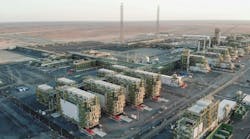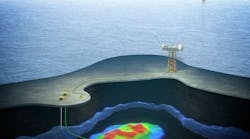How the oil and gas industry will be affected by the election of Barack Obama as president of the US remains to be seen. But it will be necessary for Obama to take control of the current financial crisis to ensure the pursuit of energy supplies.
Price inflation for the goods and services used in extracting oil and gas–along with the recent collapse in crude oil prices from a record above $147/bbl in July to around $63/bbl now–is forcing oil companies to rethink many projects around the world.
A sign of that emerged last week when BG Group CEO Frank Chapman said his firm is delaying a final investment decision on whether to proceed with Phase III development of the Karachaganak gas and condensate project in Kazakhstan.
Peak costs
“We don’t want to commit to Phase III costs in their entirety at the peak of the cycle,” said Chapman, who explained that BG wants to extend the Karachaganak III development timetable due to an anticipated decline in project costs.
With the cost of raw materials and oil services becoming cheaper with the fall in oil prices and the slowdown in the global economy, that does make sense. After all, who wants to pay more for a project when lower costs may be just down the road?
But what does that mean also, other than a delay in the start-up of expected supplies? Under the current program, originally slated to begin in 2012, the Phase III development of Karachaganak is aimed at increasing oil production to 330,000 b/d of oil and 16 billion cu m/year of gas.
That delay, in turn, could give Kazakhstan reason to rethink its relationship with the development partners. Along with BG, which has a 32.5% stake in Karachaganak Petroleum Operating BV (KPO), Eni holds 32.5%, Chevron has 20%, and LUKoil has 15%.
Kashagan revisited?
After all, it was a similar delay in the Eni-led Kashagan project that prompted the Kazakhstan government to seek greater participation for the state-run KazMunaiGaz (KMG). That was settled just a week or 2 ago, when KMG saw its share doubled and a new operating model instituted.
Something similar may be in the offing for the Karachaganak project, especially since BG is already in talks with KMG over an alternative timetable for Phase III.
One can see Kazakh officials readying their knives and forks.
BG is hardly alone in making such decisions, and many companies are taking a long, hard look at their previous investment plans. No doubt moves are already afoot to scale back investments, with potential for outright project cancellations in the medium term.
“This is about spreading the exposure over a longer period,” said Chapman in explaining BG’s decision over Karachaganak. The question that international oil executives have for President-elect Obama is simple: just how long will that longer period be?

